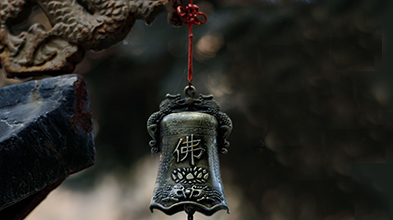Wisdom from Chinese Literary and Buddhist Classics
365 Days for Travelers
9/5: TEN ADMONISHMENTS FOR A LIFE WELL-LIVED (EXCERPT)
Jiang Kanghu (1883 - 1954, Qing Dynasty)English translation: Miao Guang
Dress coarsely:
While brocades are splendid, it is a pity to see matters being
wasted. Stressing the importance of frugality to a nation indulged in
extravagance is a correction which needs to be made urgently.
A diet of vegetables:
To be human yet inhumane is the fashion of barbarism. A bite of
vegetables offers a mouthful of savory flavor.
Sleep in the wilderness:
Spring and autumn nights are ideal when accompanied by the bright
moon and floral scents. The sky is our canopy and the earth our mat,
in-between which we wander about freely.
Rise early:
Each day is a new day; be studious. Rest well at night, and prevent
indulgence in wasteful play.
Abstinence:
Aroused sensuality leads to the decline of one’s nature; extreme
pleasure will be followed by tragedy. For the sake of vitality and
longevity, abstain from such.
Reticence:
Silent unless struck; a man of greatness should be like the bell. Who
has ever heard Heaven speak? Understanding is gained through
experiences.
Labor:
To be laborious in mental and physical activities is an ability of the
sages and deities. To be skilled in various disciplines is excellent
training for one’s body.
Recuperate:
Within the ground of the mind, not even a speck of dust is disturbed.
Deep and clear as still water, it stands firmly like the Great Wall.
Introspect:
Why not seek the cause in oneself and self-reflect on a daily basis?
Self-reproach for one’s faults, and eliminate pretentiousness to
preserve genuineness.
Have perspective:
From all heavens to dust-motes, from eternity to mere seconds, all
are equal in front of cause and effect, leaving nothing unresolved.
── from Jiang Kanghu Sixiang Yiban
(Thoughts of Jiang Kanghu)
What's New?
SEPTEMBER

Humble Table, Wise Fare
INSPIRATION
Recorded by Leann Moore 0:17
Be like pines and cypress—
they can endure trials.
Be like organs and their senses—
each has its own duty.
Be like the blind and the lame—
they can help each other.
Be like the saints and sages—
they do not slight beginners.

Dharma Instruments
Venerable Master Hsing Yun grants voices to the objects of daily monastic life to tell their stories in this collection of first-person narratives.

Sutras Chanting
The Medicine Buddha SutraMedicine Buddha, the Buddha of healing in Chinese Buddhism, is believed to cure all suffering (both physical and mental) of sentient beings. The Medicine Buddha Sutra is commonly chanted and recited in Buddhist monasteries, and the Medicine Buddha’s twelve great vows are widely praised.

Newsletter
What is happening at Hsingyun.org this month? Send us your email, and we will make sure you never miss a thing!





